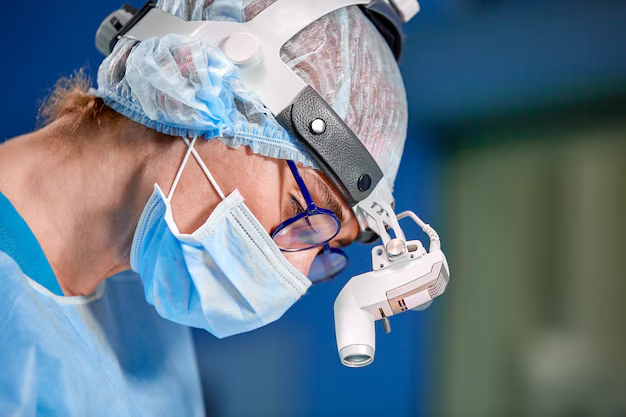Understanding Anesthesia Options for Cataract Surgery: What You Need to Know
Cataract surgery is a common procedure aimed at restoring vision impaired by a clouded lens. For those preparing to undergo this surgery, questions about anesthesia are often at the top of the list. The type of anesthesia used can affect your experience on the day of the surgery, your recovery, and even the logistics of arranging your return home. Delving into the different types of anesthesia used during cataract surgery will help you approach the procedure with greater confidence and clarity.
Why Anesthesia is Necessary for Cataract Surgery
Cataract surgery involves the removal of the clouded eye lens and its replacement with an artificial one. Even though this procedure is usually safe and quick, anesthesia is crucial. It ensures the patient remains comfortable and reduces any potential movement that could affect the precision of the surgery.
The Primary Goals of Anesthesia in Cataract Surgery
- Pain Management: The primary purpose of anesthesia is to eliminate discomfort during the procedure.
- Immobilization: Keeping the eye still is vital for the success of the surgery.
- Patient Relaxation: Reducing anxiety and maintaining a calm atmosphere can aid in smoother surgery.
Types of Anesthesia Used in Cataract Surgery
Anesthesia for cataract surgery does not typically involve "going under" with general anesthesia. Instead, several techniques can be employed:
1. Local Anesthesia with Sedation
Local anesthesia involves numbing a specific area—in this case, the eye and surrounding tissues. This approach is popular due to its effectiveness and the minimal impact on the body:
- Eye Drops: Anesthetic drops are applied directly to the eye to numb the surface.
- Sedatives: A mild sedative may be administered to help patients relax, but they remain aware and can follow simple instructions during the procedure.
2. Topical Anesthesia
This technique has grown popular due to its simplicity and rapid recovery benefits:
- Eye Drops Only: Topical anesthesia relies solely on eye drops to numb the surface of the eyelid and surrounding tissues.
- Benefits: Patients can generally recover faster as there are no needles involved.
3. Regional Anesthesia
While less common, regional anesthesia might be used in specific cases:
- Injection: A local anesthetic is injected near the eye to block sensation.
- Considerations: This may be recommended for patients with particular medical needs or concerns about staying still during the surgery.
Comparing Anesthesia Types
To give you a clearer idea of what each option involves, here's a summary of the key characteristics of the main anesthesia options:
| Anesthesia Type | Details | Advantages | Considerations |
|---|---|---|---|
| Local Anesthesia | Numbing eye drops with sedatives | Simple, flexible, quick recovery | Minimal sedation may be unsettling for some |
| Topical Anesthesia 🩹 | Eye drops only | No needles, faster recovery | Limited to less complex surgeries |
| Regional Anesthesia | Local injection near the eye | Effective for specific needs | Longer prep/recovery, requires skilled delivery |
Factors Influencing Anesthesia Choice
Choosing the type of anesthesia can depend on several factors:
Patient-Specific Factors
- Medical History: Patients with conditions affecting the brain or nervous system might require specific anesthesia considerations.
- Anxiety Levels: Higher sedation levels may be offered to those particularly nervous about the procedure.
Surgeon Preferences
Surgeons might have their preferences based on:
- Experience: A surgeon skilled in particular techniques might suggest their preferred anesthesia type.
- Facility Protocols: Certain medical facilities may encourage specific anesthesia practices due to procedural frameworks or patient flow considerations.
Preparing for Surgery: What Patients Should Expect
Knowing what to expect before and after anesthesia can significantly reduce anxiety:
Before Your Surgery
- Consultation: Discuss anesthesia preferences with your surgeon. It’s essential to share any concerns, medical history, or preferences openly.
- Instructions: Follow any pre-surgery instructions about eating, drinking, or adjusting medications meticulously.
During the Procedure
- Awareness: Depending on the anesthesia, you might be partly awake and able to hear the surgical team, which is entirely normal.
- Duration: The procedure tends to be brief, usually not exceeding 30 minutes.
Post-Surgery Recovery
- Observation Period: After the surgery, you’ll spend some time in recovery to ensure anesthesia effects wear off safely.
- Arranging Transport: Organize someone to take you home since your vision might be temporarily impaired, and due to anesthesia, you might not be in a safe condition to drive.
Safety and Risks
Like any medical procedure, anesthesia in cataract surgery carries potential risks, albeit minimal:
- Allergic Reactions: Rare but possible; ensure all allergies are discussed prior to surgery.
- Breathing Difficulties: Unlikely with local anesthesia, but reporting any respiratory issues beforehand is crucial.
Key Takeaways and Summary
Selecting the right type of anesthesia for cataract surgery is critical in ensuring comfort and reducing risks. Here’s a 🗒️ quick recap of key points for those preparing for the procedure:
- Explore Options: Discuss both topical and local anesthesia with your healthcare provider.
- Know Preferences: Assess what level of awareness or sedation feels right for you.
- Ready for Recovery: Plan your post-surgery transportation and follow-up care.
By understanding anesthesia choices for cataract surgery, you can make more informed decisions and approach your surgery with confidence and peace of mind.

